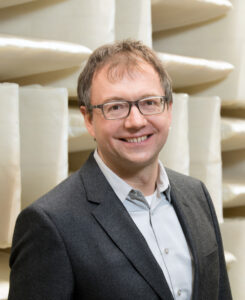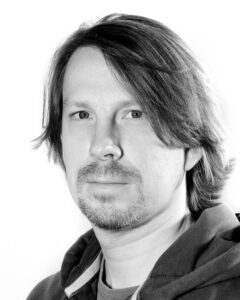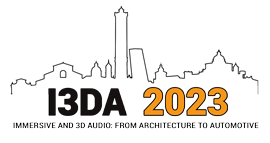Common approaches for room acoustic simulation solve computationally complex problems which are limited by computational resources or need to be simplified for real-time rendering. The session will address questions on simulation complexity in light of the interplay between the wish for a physically accurate and a perceptually convincing simulation.
Co-chairs:

Bernhard U. Seeber received the Dipl.-Ing. degree in electrical engineering and information technology and the Dr.-Ing. degree with distinction from the Technical University of Munich (TUM), Germany, in 1999 and 2003, respectively. Next, he was post-doc at the Department of Psychology at UC Berkeley, USA. In 2007 he joined the MRC Institute of Hearing Research, Nottingham, UK, to lead the Spatial Hearing lab. Since 2012, he is the head of the Audio Information Processing lab and Professor in the Department of Electrical and Computer Engineering at TUM. His research foci are on signal processing for hearing aids and cochlear implants, on virtual acoustics, spatial hearing, auditory modeling and acoustic nondestructive testing. Prof. Seeber is a member of the German Acoustical Society (DEGA), the Association for Electrical, Electronic & Information Technologies (VDE), the Acoustical Society of America (ASA), the Association for Research in Audiology (ARO) and the Bernstein Network for Computational Neuroscience. He heads the technical committee on hearing acoustics in the Society for Information Technology (ITG/VDE) and was member of the executive board of the DEGA from 2016 to 2022. He received the Lothar-Cremer award of the DEGA, the doctoral thesis award of the ITG and the ITG publication award.
 Stephan D. Ewert studied physics and received his Ph.D. degree in 2002 from the Carl von Ossietzky UniversitätOldenburg, Germany. During his Ph.D. project, he spent a 3-month stay as visiting scientist at the Research Lab of Electronics at the Massachusetts Institute of Technology(MIT), Cambridge, MA. From 2003 to 2005, he was Assistant Professor at the Centre of Applied Hearing Research at the Technical University of Denmark (DTU), Lyngby, Denmark. He re-joined Medizinische Physik at the Universität Oldenburg in 2005, and there he has been the head of the Psychoacoustic and Auditory Modeling Group since 2008. Dr. Ewert started his interest in hearing and audio engineering by developing loudspeakers during his early undergraduate years. His field of expertise is psychoacoustics and acoustics with a strong emphasis on perceptual models of hearing and virtual acoustics. Dr. Ewert has published various papers on spectro-temporal processing, binaural hearing, and speech intelligibility. More recently, he also focused on perceptual consequences of hearing loss,hearing-aid algorithms, instrumental audio quality prediction, and room acoustics simulation.
Stephan D. Ewert studied physics and received his Ph.D. degree in 2002 from the Carl von Ossietzky UniversitätOldenburg, Germany. During his Ph.D. project, he spent a 3-month stay as visiting scientist at the Research Lab of Electronics at the Massachusetts Institute of Technology(MIT), Cambridge, MA. From 2003 to 2005, he was Assistant Professor at the Centre of Applied Hearing Research at the Technical University of Denmark (DTU), Lyngby, Denmark. He re-joined Medizinische Physik at the Universität Oldenburg in 2005, and there he has been the head of the Psychoacoustic and Auditory Modeling Group since 2008. Dr. Ewert started his interest in hearing and audio engineering by developing loudspeakers during his early undergraduate years. His field of expertise is psychoacoustics and acoustics with a strong emphasis on perceptual models of hearing and virtual acoustics. Dr. Ewert has published various papers on spectro-temporal processing, binaural hearing, and speech intelligibility. More recently, he also focused on perceptual consequences of hearing loss,hearing-aid algorithms, instrumental audio quality prediction, and room acoustics simulation.

